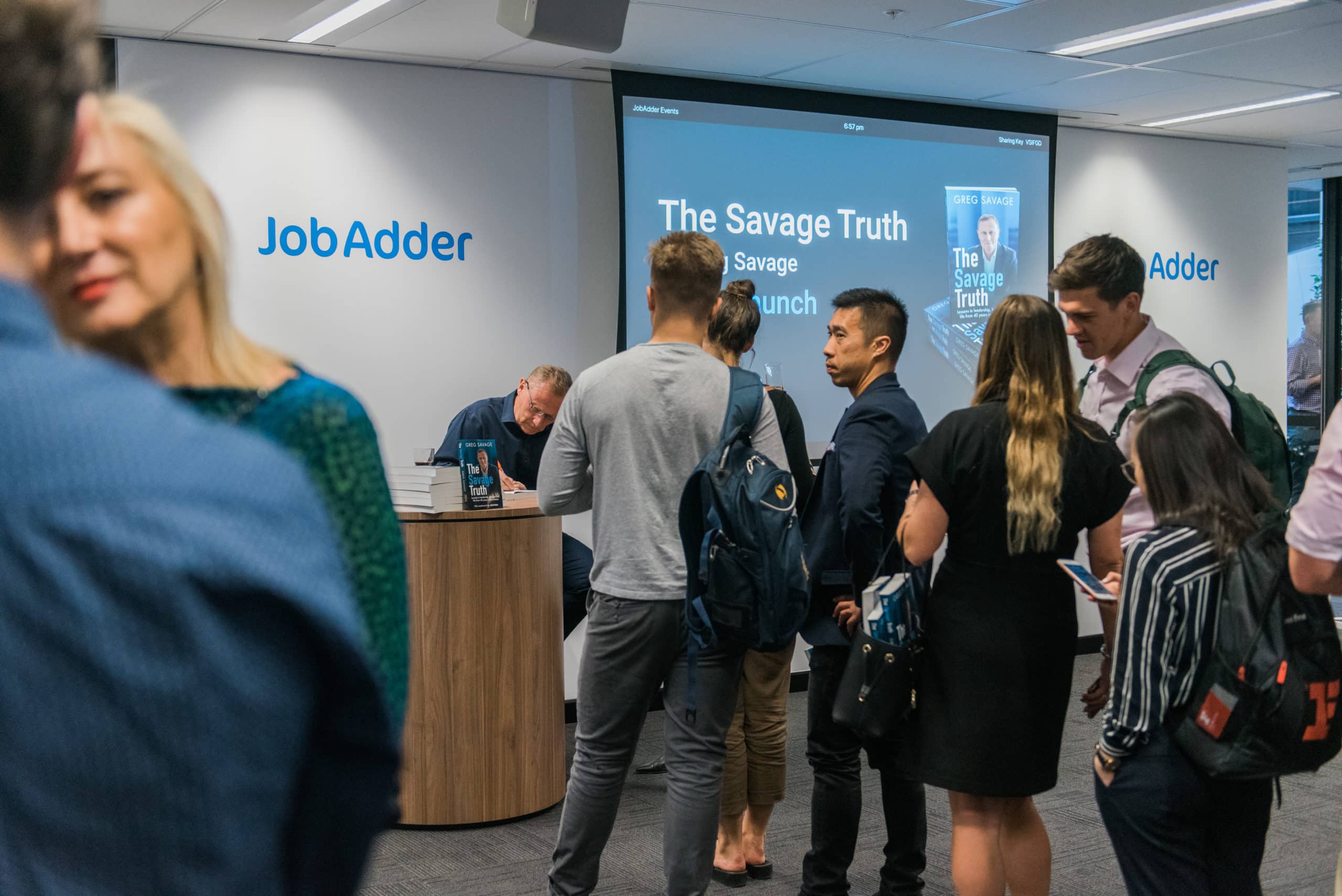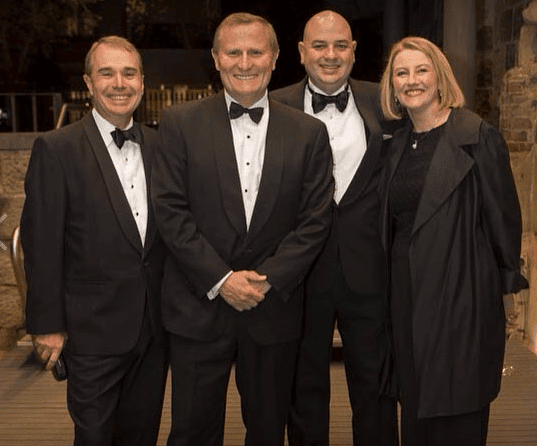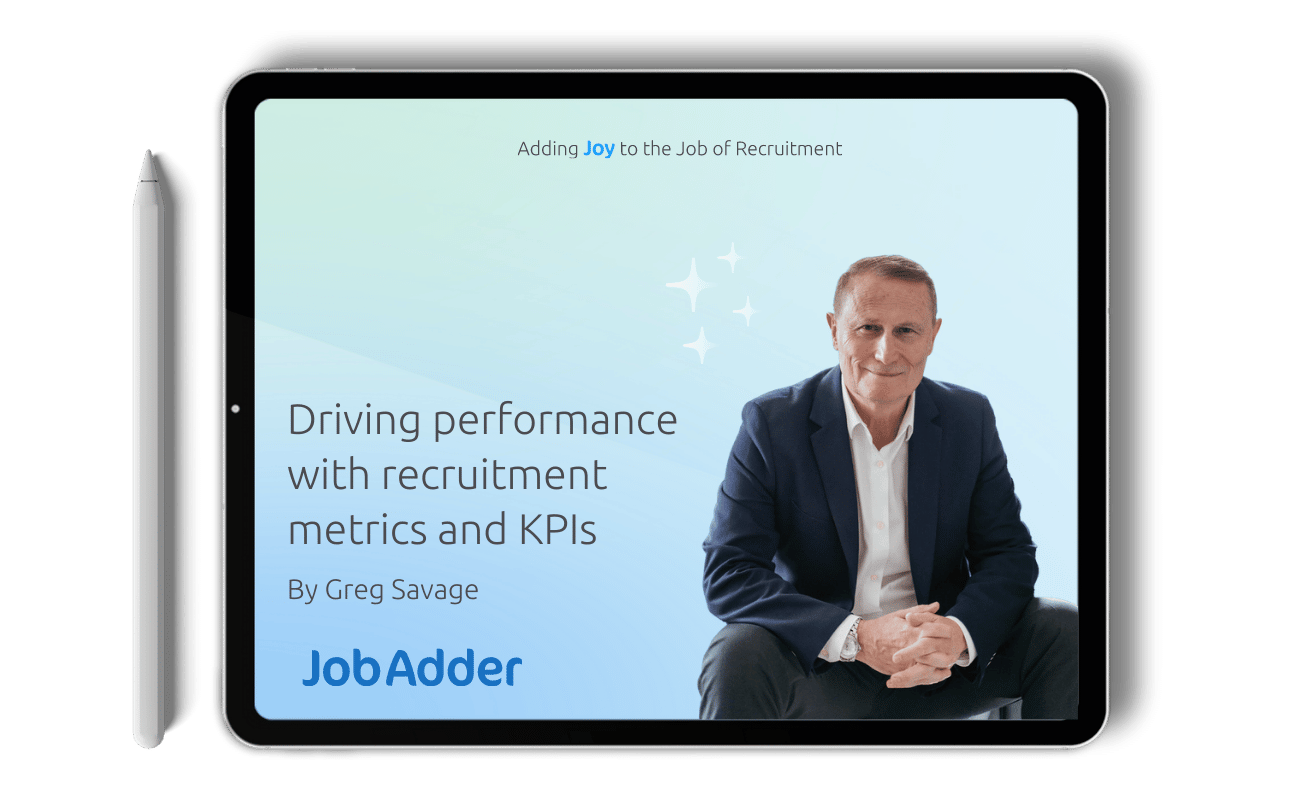Recruitment Blog
The Savage Truth by Greg Savage: An insight into 40 years of recruitment

“According to the greatest recruitment clichè of all, most recruiters ‘fall into’ the industry. It’s a career that few seek, and even fewer stay working in long term.”
And so begins industry leader Greg Savage’s recollections, built up over 40 years in recruitment, in his new book The Savage Truth.
The book dives into such topics as how to run a recruitment business, recruitment strategies, performance management and leadership.
Addressing an audience of more than 100 recruitment professionals at a book launch held at JobAdder headquarters November 13, Greg spoke about why he wrote the book, what it was like recruiting in London pre-internet and lessons in leadership.
Following the launch, we interviewed Greg on his experience of the writing process and advice to those looking to do the same.
We also threw in a couple of curveball questions, so read on!
JobAdder: Benjamin Franklin once said: “Either write something worth reading or do something worth writing.” You’ve certainly ticked both boxes! What was the writing process like for you?
Greg: I wrote the book in six months, mostly at airports and on flights. I had a lot of material though; I’ve written 400 to 500 blogs and given thousands of speeches. So, that was able to be repurposed.
I also got help from Ross Clennett and others who set up Savage Alumni pages on LinkedIn and Facebook announcing that I was writing a book. I said to them, “it’s been 40 years. I can’t even remember who ran my Singapore office 10 years ago!”
So, people then put in hundreds of stories and reminded me of events. A lot of them are actually quoted in the book, but also a lot of them cause me to think, “oh yeah, that was fascinating.” For example, one person said: “Hey, do you remember the time that you changed that whole process at Aquent, and we were only allowed to take exclusive job orders?” If a job was in competition, we wouldn’t take it. And of course, I remembered everything and I remembered why I did it. I remember the outcome. So I wrote about that.
It was very helpful in getting people to remind me. But even now, once they’ve read the book, people ask me why I didn’t talk about this or that. In most cases, the answer is I forgot about it. It’s 40 years, it’s been a long time. I’ve done a lot of things.
Then there was another six months of proofreading. It’s a huge process. I wrote the book in 15 chapters and the woman who proofread it came back and said, “No, it’s going to be 25 chapters. I’ve broken it up.” That just improved it dramatically; it made it more logical and turned it into two sections.
That took a lot because my first response was “don’t play with my baby, it’s perfect,” but that was followed by my realisation that her version was so much better.
JobAdder: What word best describes your feelings after launching the book?
Greg: Relief. Also satisfaction, but relief. It was done. It felt like a legacy. I felt that I get all these questions every day, so maybe I should write it all down and then people could learn from it.
So it was a relief. I was proud of the book, but mostly I was proud that I had actually done it, because it’s quite hard work, and it requires introspection.
When you read the book, you will see that a lot of the book is about the mistakes I’ve made.
But ultimately, I was relieved and proud when it was finished. Now that I’m getting the feedback, I’m glad I did it, and I think it’s worthwhile.
JobAdder: In the book, you reference the mistakes you’ve made. What was the one mistake you’ve made in your recruitment career that you regret?
Greg: I sent a candidate’s resume to her own boss. That wasn’t good and I felt very bad about that for a long time.
When I was a younger manager, in my 20’s maybe even up to my early 30’s, I was pretty demanding. I had high expectations, and I wasn’t mature enough to realise that one person could benefit from a different type of management style to somebody else. I was saying, “this is how we do it,” and I delivered it to everyone in the same way. I was harsh sometimes and I reflect on that. Certainly, the book writing process made me look back and evaluate, but it’s all part of maturation. As long as you evolve and improve, mistakes are fine; in fact, they are essential.
I wouldn’t say ‘regret’ but I acknowledge it; I’ve got a lot better at it. In terms of mistakes I’ve made with hiring people, opening offices that I shouldn’t, acquisitions, to me, it’s all part of the rich tapestry of life. You have to try big things and if you do, it’s inevitable that some will fail. But in the long time I succeeded more than I failed, and I am comfortable with it all.
I don’t think you can do really cool, difficult things without making mistakes. So, I don’t really regret it at all, because if I hadn’t done those things, I wouldn’t have done the rest that really did work.
It’s a nuanced thing. I still make mistakes and I’ve been doing it for 40 years. So it’s not an exact science. I don’t regret any of it. Some of it wasn’t successful, but the vast majority of it was, and if it didn’t turn out to be successful, I always learnt. The next time I did it better.
JobAdder: You mention that because The Savage Truth covers your 40 years of experience within recruitment, it’s hard to pinpoint your favourite chapter, year or experience. What have been the three standout experiences for you over the course of your time in recruitment and why?
Greg: The day we started our agency Recruitment Solutions, but also, more importantly, the day it was listed on the Stock Exchange. I was immensely proud when that happened because when you list the company that you founded on the Stock Exchange, and thousands of people and institutions invest their money in your business, it is really an affirmation, and a realisation of challenges to come.
It’s a huge responsibility because now you’re still running the business and people have invested, so they want the share price to go up. But that was a day of significance. It was a sense of achievement.
I think the day that I was promoted to become the international CEO of Aquent. Everything that we did to get to that point was a significant achievement.
The other thing I’m very proud of is People2People, which is a company I founded with three others.
 Source: Greg Savage
Source: Greg Savage
That company was born in Sydney– 15 years ago in my lounge room. It was where I encouraged the other three who I founded the company with, to start the business and I put the money in for it. It’s now a significant national business that has a great ethos. And I’m very proud of it, even though I can’t take any credit for it. It’s created a lot of jobs for people; it’s created a lot of careers for people, and it’s made a lot of money.
JobAdder: What sort of response were you hoping to get after the book was released?
Greg: Actually, I was very embarrassed about announcing I was publishing a book because honestly, I thought the response might be “who cares?” The response has been so positive such as the feedback on LinkedIn. I get a lot of emails that say “this has really made a difference to me,” and “this has opened my eyes and it’s a magnificent read.” All the way upwards of a hundred notes. That has been very gratifying because it suggests that the ideas and learnings are being passed on, and that’s cool.
At the book launch, someone came up to me and gave me a gift and said: “This is just a thank you for the difference you’ve made to my life because I’ve read all your work and acted on it.”
JobAdder: This may be too soon to ask, but is a second book potentially in the works and if so, what would that be about?
Greg: I would never write another business book. I would love to write a book of children’s stories which I inherited from my father. He used to tell us crazy stories.
If I ever want to do a project that wasn’t recruitment based, I’d love to do that.
JobAdder: What advice would you give to other recruitment agency owners or those who’ve been in the industry for a significant amount of time, about publishing their own experiences?
Greg: If you’re going to write a book, there’s a couple of things I’d say. One is, you have got to make sure you’ve got a compelling story or an angle that is really relevant and interesting. I suppose mine was that it’s 40 years in one industry and I’ve done a lot of things that people would like to do or not do.
You can self-publish a book. But having a publisher like Lesley Williams was really helpful because I’ve never written a book. She gave me a lot of advice, both in the process and then in the publishing.
And the third is when you sit down to write a book, it is a gigantic task in front of you. It just seems impossible to tackle. I sat down and said, “okay, January the 29th, 1980. I’m going to write a book based on 40 years.’ And I must admit at that point, I nearly gave up there and then.
You create a framework and then you just start, and suddenly you get carried away and you’ve written one hundred pages and it may end up that those pages are edited back to 50, but you’ve just got to make a start.
Otherwise, it becomes just too big a thing to even face. You’ve got to start and be prepared to refine and change. There were things in the book that we cut out, that I thought were brilliant, but in the end, I was persuaded against it. So you’ve got to be open to that.
JobAdder: What did you leave out of the book that you wish you’d been able to keep in?
Greg: There are a lot of things that could’ve been worth including, but in the interest of brevity you just can’t make the book that long. We opened up an office in Barcelona, in Amsterdam. Every agency opening has stories about it, but how long is this book going to be? There are also stories in 40 years of recruitment that just cannot be published in the interests of taste, and to avoid defamation claims.
Want to better track your recruitment metrics and KPIs? Greg Savage breaks it down…

Related blog posts

By Nina Mapson Bone Recruitment KPIs In over a quarter of a century of working in recruitment, I’ve worked in …
Ready to get started?
Talk to one of our friendly team members



